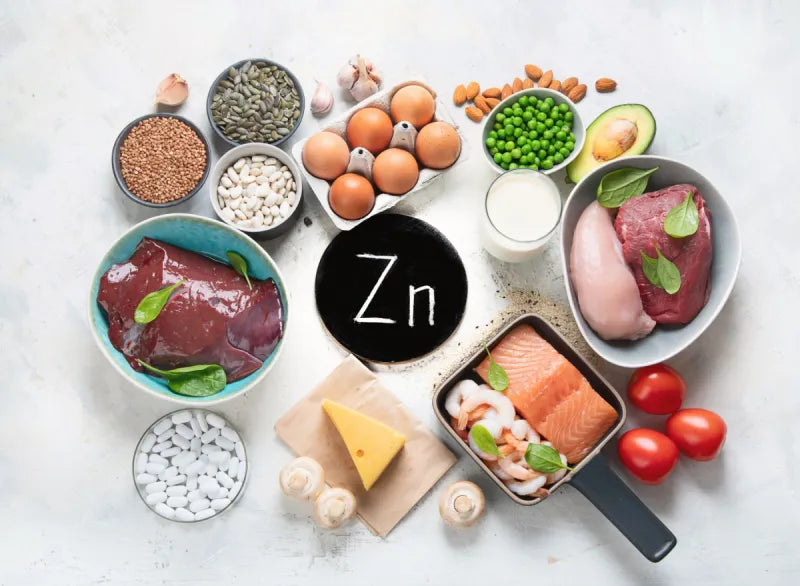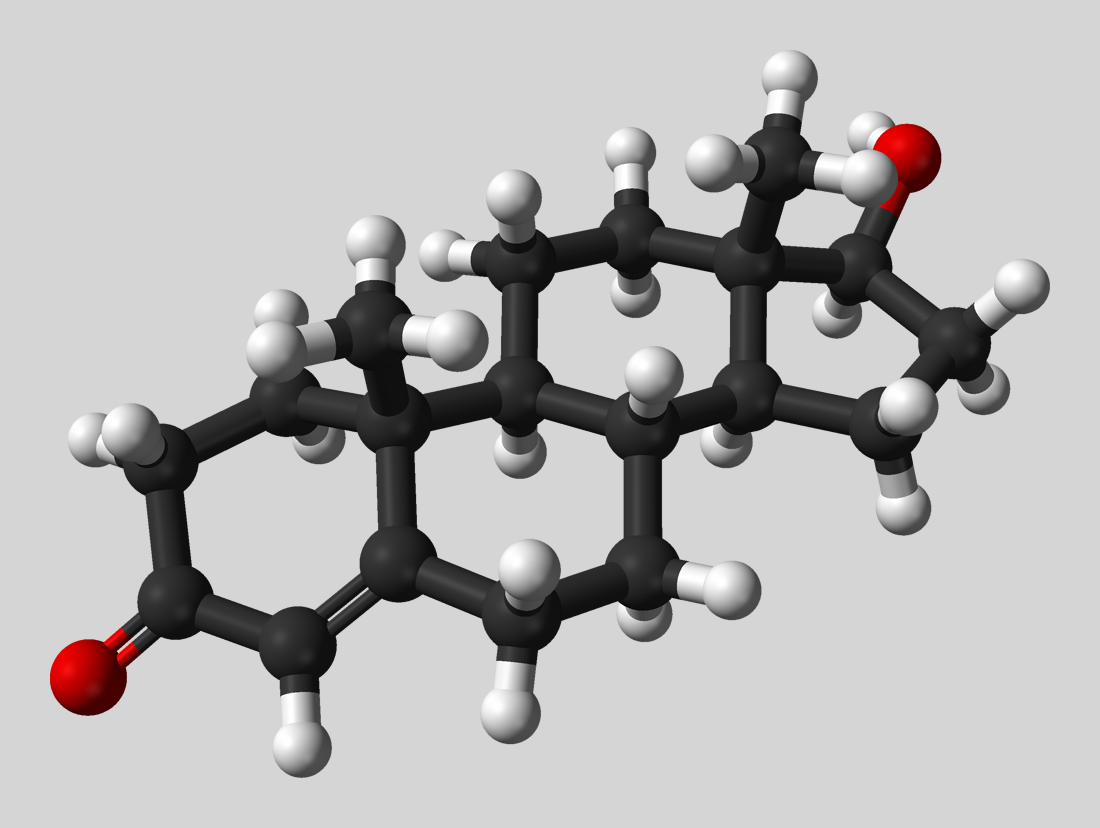In the 1960s, early cases of growth deficiency were reported in young men. These men consumed vegetable proteins and no animal products. When scientists provided zinc nutrition therapy, this restored their health and growth.
Zinc is an essential mineral that is found throughout the body with the highest concentrations in muscle and bone. The human body contains between 1.5 – 3 g of zinc that is used to support enzyme function, vitamin and hormone function, and protein synthesis.
Function and digestion
In addition to normal growth and development, zinc plays a key role in our metabolism; it’s necessary for enzyme function and assisting our cells to work properly. Zinc also helps synthesize protein in muscle and is integral for proper gene transcription and DNA replication. Zinc plays a role in wound healing and immunity and helps with carbohydrate metabolism. Interestingly, it’s also required for a proper sense of taste and smell.
Daily intake of zinc is essential for optimal health as our bodies can not store the mineral. 40-70% of the zinc we ingest comes from animal products, with red meats (particularly organ meats) and seafood being reliable sources. Oysters are extremely high in zinc; 3oz of farmed oysters can provide most people with their total daily recommended dietary intake of zinc.
When we ingest foods or supplements with zinc, the mineral is first separated in the highly acidic environment of the stomach before moving on to the small intestines where enzymes continue to separate it from foods for absorption in the blood. In healthy digestive tracts, only 25-50% of zinc is absorbed from a meal as a mechanism to protect against toxicity. When zinc is consumed in along with alcohol, the absorption is further decreased; 1 in 2 individuals with high alcohol consumption have low zinc status because of this.
Will supplementing with zinc help me fight a cold?
Popular over-the-counter supplements with zinc can be found in the cold and flu sections of many pharmacies. This isn’t surprising given that the body requires zinc for the activation of immune cells, specifically T-cells that work to kill viruses.
In some, but not all studies, supplementing with zinc within the first 24 hours of the onset of symptoms will help reduce the duration and severity of the cold symptoms. The typical dosages used can be above 75mg/day, and there is a possibility of toxicity at these dosages, which can lead to nausea, vomiting, abdominal pain and bloody diarrhea. Chronically ingesting excess zinc can also lead to copper deficiency and excess intake with zinc nasal spray can lead to anosmia, a permanent loss of smell.
Application
Zinc deficiency can result in delayed growth and sexual maturation, hypogonadism and sexual dysfunction in men, eye, and skin lesions, delayed wound healing, and hair loss.
It is thought that 30-35% of older adults fail to meet the estimated average requirement of zinc, and 20-25% still have inadequate zinc intake even with supplementation. This may be due to zinc absorption issues because of what we eat with zinc including antacids or stomach issues that could raise the pH of the small intestines.
If you are looking to boost your zinc absorption, be aware that food compounds such as oxalic acid that is found in spinach, berries, and chocolate, can decrease absorption. Tea and coffee can also inhibit absorption because of polyphenols that compete for absorption, and so too can fibre, though most North Americans consume too little fibre for this to be a concern. Finally, other minerals compete for absorption such as iron and calcium.
We can also enhance the absorption of zinc by consuming it with citric acids as well as protein.
Your optimum health takeaway
The 1960s study of zinc and male growth not only gave scientists insight into the importance of zinc in human growth but also provided clues to the role of absorption for overall zinc status. In these young men, zinc intake wasn’t low, their diets were high in grains that contained phytates, something that interferes with zinc absorption causing deficiency.
Having a good health care team is important. A good team will carefully monitor nutritional intake to ensure that not only are you getting enough nutrients, but you’re also optimizing the absorption of the nutrients you’re consuming. Reviewing your blood work regularly will help monitor your zinc levels for optimal health and wellness. A dietary review will also help to identify if both intake and competing absorption for essential minerals are optimal.
References:
1. Beck FW, Prasad AS, Kaplan J, Fitzgerald JT, Brewer GJ. Changes in cytokine production and T cell subpopulations in experimentally induced zinc-deficient humans. Am J Physiol. 1997;272(6 Pt 1):E1002-7.
2. Ervin RB, Kennedy-Stephenson J. Mineral intakes of elderly adult supplement and non- supplement users in the third national health and nutrition examination survey. J Nutr. 2002;132(11):3422-7.
3. Kang YJ, Zhou Z. Zinc prevention and treatment of alcoholic liver disease. Mol Aspects Med. 2005;26(4-5):391-404.
4. Wise A. Phytate and zinc bioavailability. Int J Food Sci Nutr. 1995;46(1):53-63.






